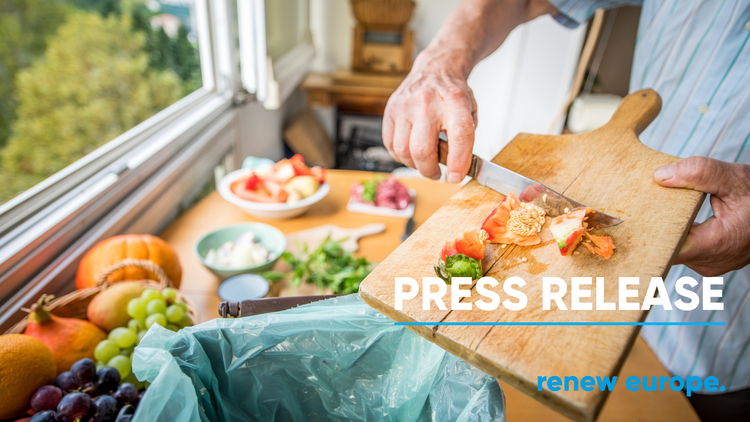
That is especially true when we look at the amount of worn and unworn textiles and food waste that piles up on the waste mountain every year. Approximately 58 million tonnes of food waste, something like 131 kg per person, and 12.6 million tonnes of textile waste, including footwear and clothing, amounting to 12 kg of waste per person are generated annually in the EU. For the majority of these discarded clothing and textiles and non – consumed foods, life usually ends up on a landfill or in the incinerator, as it is estimated that globally less than 1% of all textiles are recycled into new products.
Today's adoption in plenary of an updated Waste Framework Directive for textile and food waste marks a decisive move in achieving Renew Europe's goals to reduce waste piles while boosting a functional circular economy. Where Renew Europe has previously secured ambitious targets for reducing packaging consumption and packaging waste, so our shadow rapporteur Róża Thun und Hohenstein has now obtained decisive progress to better prevent and reduce waste from food and textiles.
By scaling up binding waste reduction targets to at least 20% in food processing and production and to 40% per capita in retail, food services and households, EU countries should ensure that, through a further leverage of effective national strategies and targeted solutions, such as clarifying date labelling and charming ‘ugly’ fruit and vegetables attractive again to eat, these food waste prevention targets should be achieved at national level by the end of 2030. Renew Europe also welcomes the adoption of new incentives to tackle the negative impacts of fast fashion. The introduction of extended producer responsibility (EPR) schemes for fashion brands allows textile manufacturers to cover the costs of separate collection, sorting and recycling. In parallel, improved infrastructure at national level to increase the collection of textiles for reuse and recycling in a functioning circular economy safeguards textiles from being burned, giving them a second life.
MEP Róża Thun und Hohenstein (Polska 2050, Poland), Renew Europe shadow rapporteur on this file said:
“Food and textile waste! Do you know how much of this waste we produce? With 58 million tonnes of food waste (131 kg per EU citizen) and over 5 million tonnes of clothing and footwear waste discarded each year in the EU, the vote on the Waste Directive represents a step in the right direction. This is a triple win: Lowering the environmental impact of food and textile production; Saving food for our own consumption and having better textile recycling infrastructures; Helping businesses and consumers to save money! Let's be part of the solution and make the change! Let's ensure responsible production and support conscious consumption!”
Please watch the video HERE.